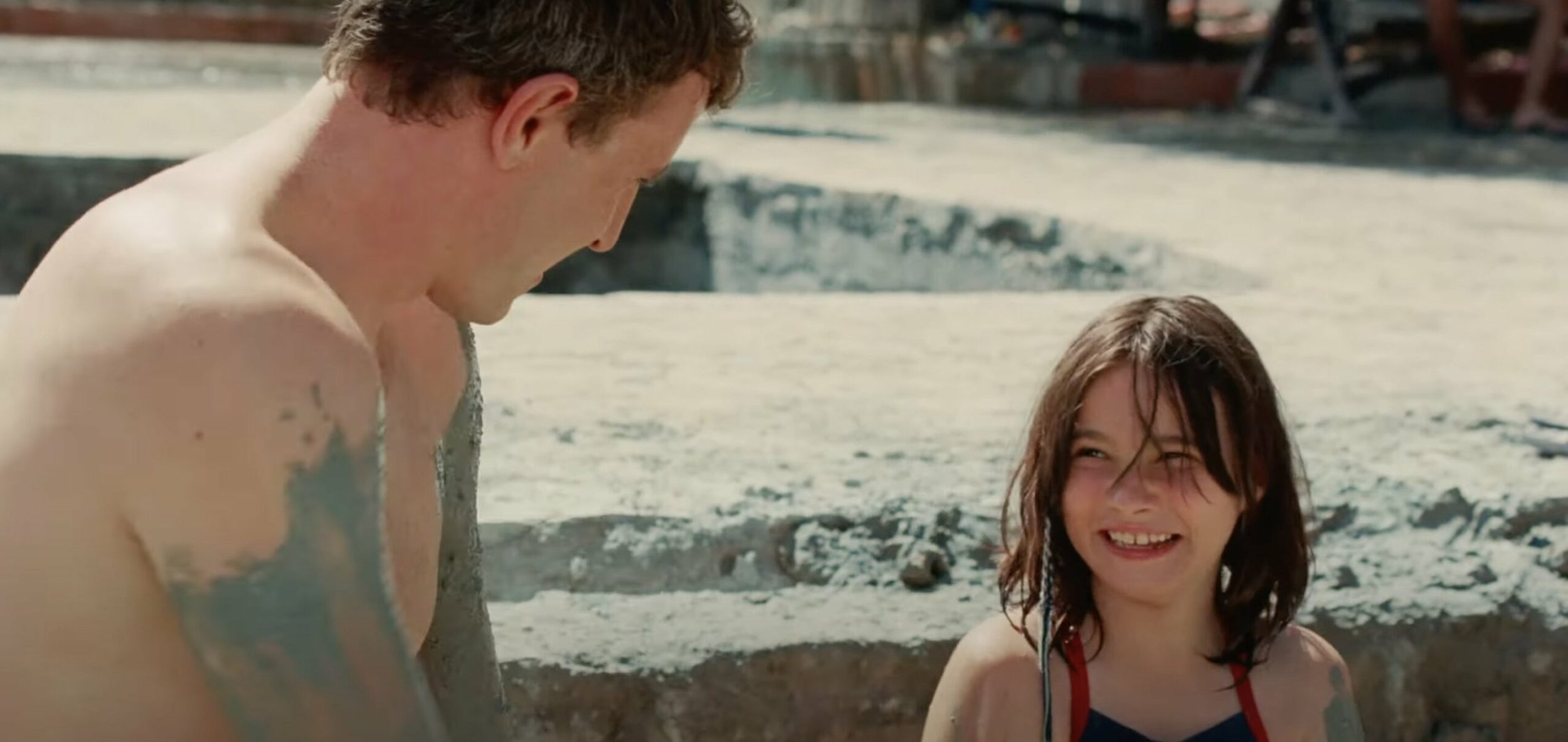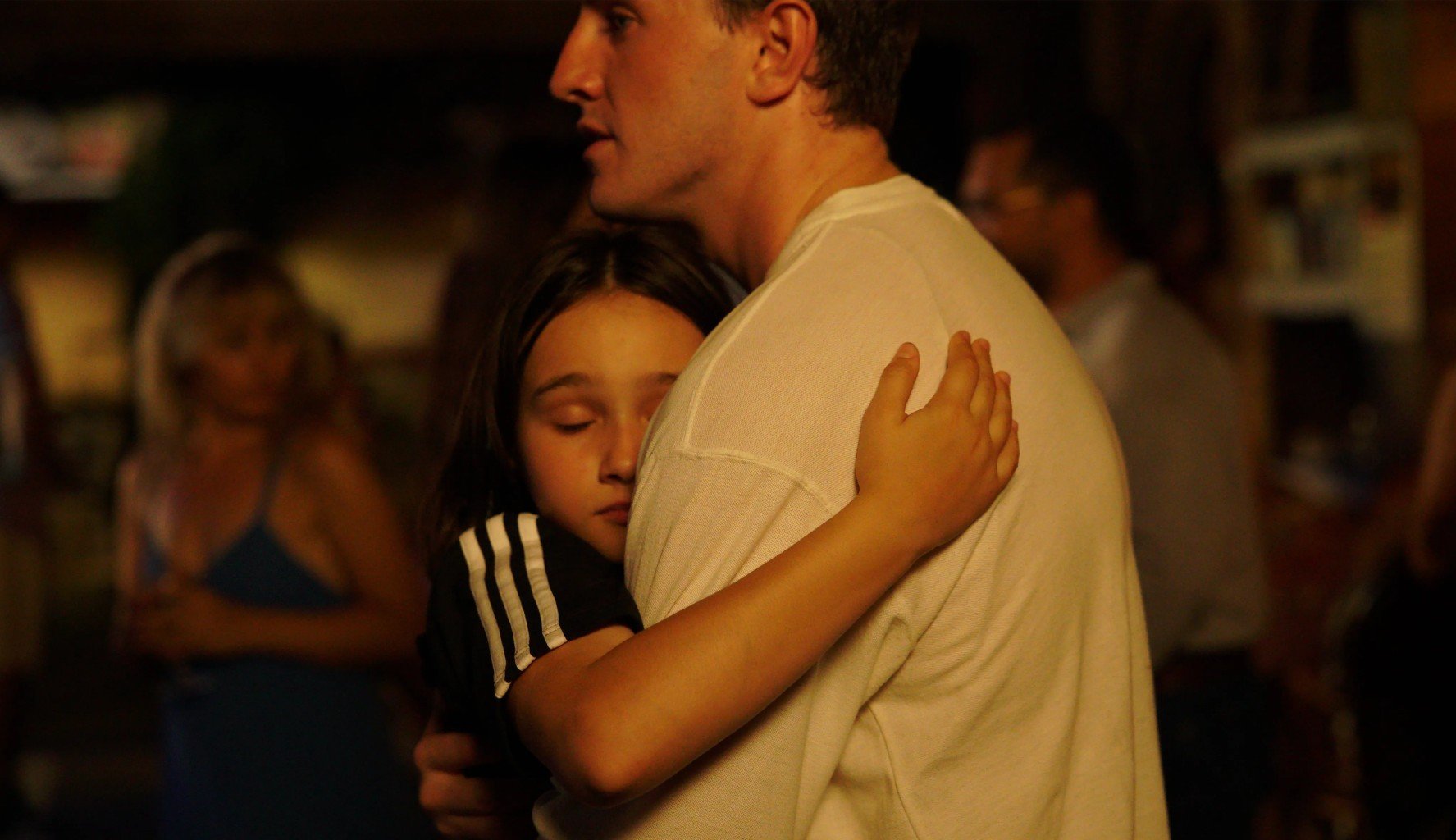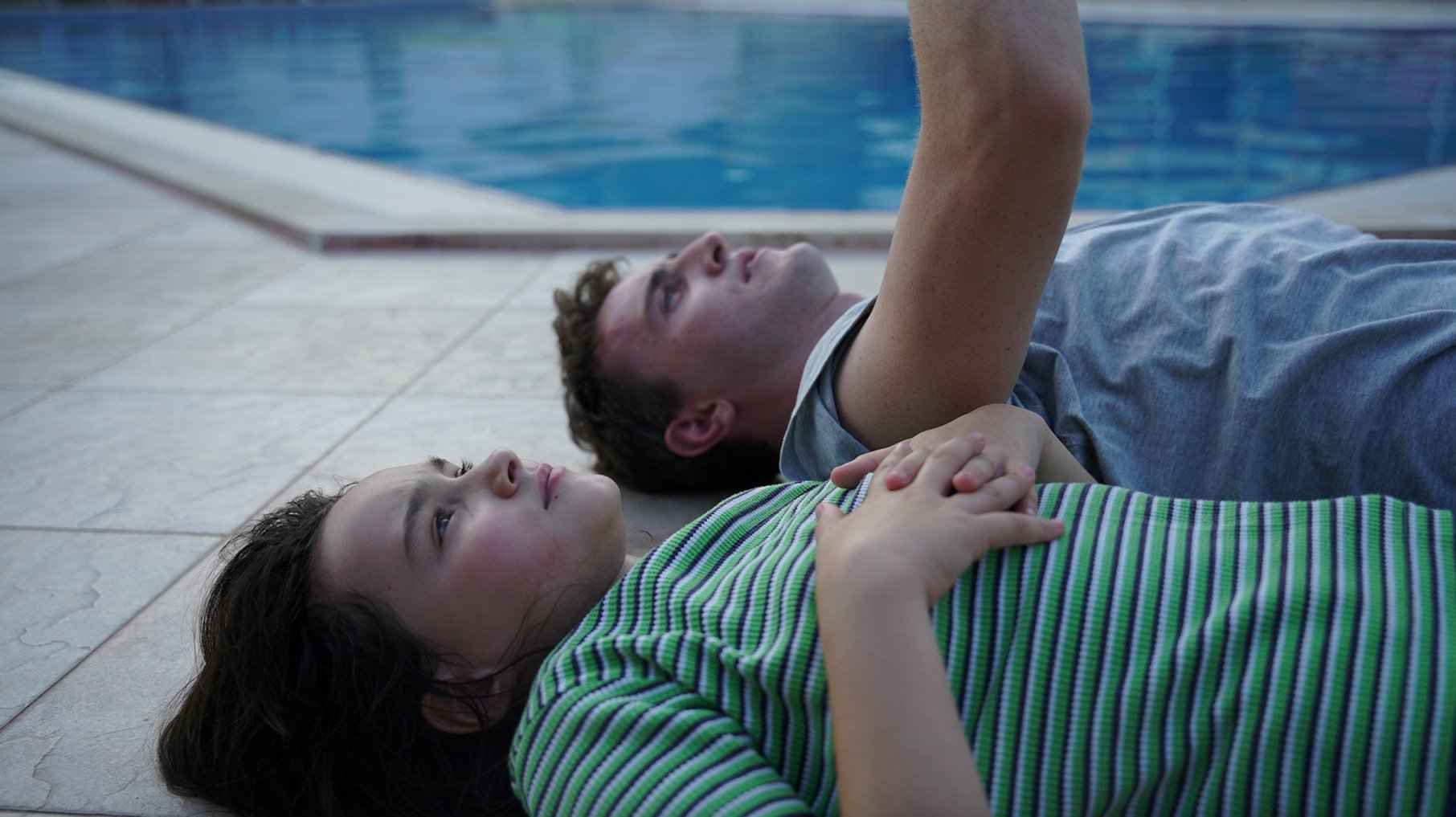Directed and written by: Charlotte Wells
Starring: Paul Mescal and Frankie Corio
Runtime: 102 minutes
‘Aftersun’: Don’t miss this trip
Summer vacations are (mostly) pleasing breaks from the daily grinds of school, work, and everyday life. Years later, many of us tend to look back on those escapes with fond recollections of amusement park rides, snow cones, unfamiliar hotel lobbies, and ocean, lake, or swimming pool plunges. Perhaps the best moments are when our parents let their guards down and allow their inner child-flags to fly.
Good times.
On the other hand, these getaways aren’t all smiles, rainbows, and lollipops. Conflict and mishaps can arise – out of nowhere - and for reference and commiseration, watch “National Lampoon’s Vacation” as a form of therapy.
“This is the new Wagon Queen Family Truckster. This is a damn-fine automobile if you want my honest opinion.”
There’s a reason why this hilarious Chevy Chase vehicle (pardon the pun) earned 63 million at the box office in 1983 dollars.
In my view, director/writer Charlotte Wells’ debut feature film, “Aftersun”, is about as memorable as the aforementioned comedy, but for vastly different reasons. This 102-minute art-house drama features a dad (Paul Mescal) and his 11-year-old daughter (first-time actress Frankie Corio), and these Scottish natives take a holiday under the warm sun and blue skies of a Turkish coastal city.
This particular trip comprises of many more grand times than sullen ones, and Wells showcases dozens of individual moments – between Calum (Mescal) and Sophie (Corio) - that are ordinary in scope and usually filled with casual discourse and mild debates.
“Aftersun” is presented as an everyday family getaway.
Mescal and Corio carry so much authentic father-daughter chemistry, the movie feels like a documentary where Wells seems to tag along silently with her camera in tow. Through most of the first and second acts, barely any happenings rise above dramatic room temperature as Calum and Sophie lounge by the pool, grab drinks, stroll to an outdoor arcade, and hop on a boat. Back at home, Sophie lives with her mom in Scotland, while Calum resides miles and miles away in England. In Turkey, the two catch up and converse about her school and future, his work (prospects), and commonplace discussions about their lazy-day events, like deciding when to put sunblock on their vulnerable, pasty white skin or acknowledging lost scuba equipment.
The deliberate, relaxed pacing and subdued exchanges can initiate frustration for some audiences, but Wells includes essential clues along the way, especially about Calum through his change in moods, small conversational reveals, and the clear presence of a cast surrounding one of his forearms.
Our young protagonist behaves like any other 11-year-old kid, but Sophie is a constant source of good manners. Her agreeable persona is drama-free. She utters some minimalist declarations that mostly appear inconsequential during the first 70 or so minutes, but they land with grand impacts in the imminent third act.
Meanwhile, calming images of welcoming weather patterns, clear waters, and casual pleasantries of dozens of other smiling visitors accompany our parent-child heroes, and cinematographer Gregory Oke and Wells assuredly and effectively lull us into a sense of comfort.
We’re along for this amiable journey too, where a largely absent father - due to living and working arrangements – attempts to offer his pride and joy a marvelous, scenic outing, one above his means.
Look, it’s best to approach “Aftersun” with patience, ease, and attentiveness. Embrace the performances, look and listen for visual and verbal cues, and note the famous 1981 track by two renowned British artists during the third act. Through careful nuance and routine occurrences, Wells threads colossal and timeless messages that can deeply resonate with just about every family in Scotland, England, Turkey, and anywhere else in our universe.
Don’t miss this trip.
Jeff’s ranking
3.5/4 stars















